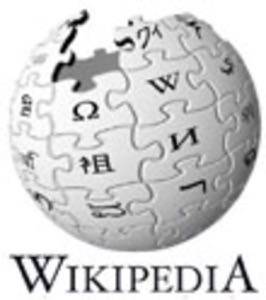Talk about a knee-jerk reaction. Yesterday, news broke out in Scotland about how the internet was to blame for Scotland’s failing exam pass rates. According to the Scottish Parent Teacher Council (SPTC), Wikipedia, among other sources, was cited as the reason as to why the students were failing. Is this a case of the internet making us stupid? Or do students just need to learn how to use the new research tools of the web a little more appropriately?

It’s All Wikipedia’s Fault!
According to the report, Eleanor Coner, the SPTC’s information officer, said: “Children are very IT-savvy, but they are rubbish at researching.” She noted that today’s students do the majority of their research online instead of using books or other resources that could be found at the library.

The internet encyclopedia, Wikipedia, was one of the Council’s main concerns because its very nature allows it to be edited by anyone and it is not updated by verified researchers, they said.
In addition, the Council was worried that students don’t know how to research and tend to put faith in the validity of online resources. Says Ronnie Smith, the general secretary of the Educational Institute of Scotland, “We need to make sure youngsters don’t take what they read online as fact.”
Sounds familiar, doesn’t it?
We’ve heard many of iterations of that phrase before – “don’t believe everything you read,” “don’t believe everything you see on TV,”…now it’s the internet’s turn to be held up to scrutiny.
Is The Internet Making Us Stupid?
A quick glance at this news could lead one to believe that this is a clear case in support of Nicholas Carr’s recent argument that the internet (or Google, as he says) is making us stupid. Easy access to a stream of information via the internet, he says, is affecting our ability to focus for long periods, like when reading and absorbing long articles (a trend we also mentioned here). In a way, Wikipedia could be seen as the ultimate manifestation of our convenience culture when it comes to information retrieval.
How many times per day do you do a quick search to look up a quick fact and winding up skimming the highlights on a Wikipedia page? (For me at least, I’ll admit it’s a the very least a daily occurrence, if not more.)
But are the failing test scores really an indication of our brains’ ability to reprogram itself to adapt to this new way of learning, as Carr mentioned in his article? And is that ability really affecting our intelligence?
…Or Do Students Need To Learn How To Research ?
Perhaps not. If anything, this problem could point to the fact that educational institutions need to adapt their curriculums to include teaching students what real research is all about. A Google search may or may not lead them to valuable resources online, but many students today clearly don’t know how to differentiate between what’s legitimate and what’s not. Being able to look at a piece of information online and challenge it in order to determine whether or not it is a fact is simply not a skill that many online users have. However, once this process is learned, students can apply it throughout their education – no matter what medium they use for research.
Image credits: Library: Canadian Veggie

















